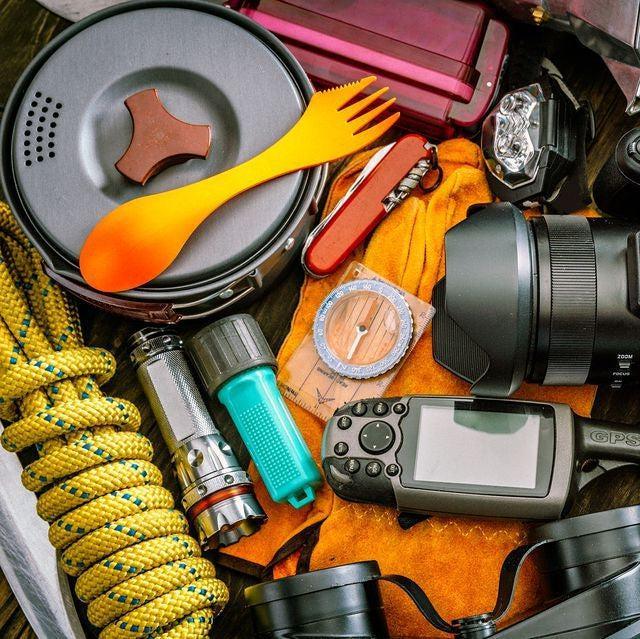
How to Make an Antibacterial Sanitizer at Home
Share
While thorough hand washing with soap remains the frontline of defense against the bugs and viruses that are currently circling the globe, it is valuable to carry a hand sanitizer when you need to travel or leave the house. This is a particularly good backup to have when you know you’re going to be on the move and you won’t be able to get to a sink in order to wash.
It is easy to make your own homemade hand sanitizer using only natural ingredients. You can feel comfortable that it contains none of the harsh chemicals found in most industrially produced sanitizers. Store-bought products tend to be laden with parabens, synthetic fragrances, and sodium lauryl sulfate, all of which are detrimental to the human bio-system.
How To Use Hand Sanitizer
Just as with washing your hands, alcohol-based hand sanitizer is only effective if it is used properly. Rub it into your hands for a minimum of 30 seconds, making sure you get cover your palms, the back of your hands, between fingers, and round the fingernails. In light of the spread of coronavirus, it is worth noting the CDC recommendation in relation to the use of hand sanitizer:
“CDC recommends washing hands with soap and water whenever possible because hand washing reduces the amounts of all types of germs and chemicals on hands. But if soap and water are not available, using a hand sanitizer with at least 60% alcohol can help you avoid getting sick and spreading germs to others. The guidance for effective handwashing and use of hand sanitizer in community settings was developed based on data from a number of studies.”
What Are The Benefits Of An Alcohol-Based Hand Sanitizer?
Alcohol has long been used for medical purposes owing to its germ-killing powers. Alcohol is a natural disinfectant and is used as a standard for cleaning wounds and injuries. Alcohol dissolves bacteria through a process called denaturation, breaking down the membranes of the bacterial cells so that they die off with speed. A minimum level of 60% alcohol is needed for a solution to be effective enough for disinfection, while higher percentages can also be used for a stronger and more potent effect.
Which Essential Oils Should I Use?
Even mainstream science acknowledges that essential oils have potent antibacterial and antiviral capacities. It is a good idea to mix several essential oils together so that you end up with the most effective broad-spectrum formula. Tea tree oil has a reputation that stands out and is definitely worth including in your blend. Here are a number of oils that are known to have both antiviral and antibacterial properties:
- Tea tree
- Melissa
- Lemon
- Thyme
- Oregano
A Natural DIY Hand Spray Recipe
The following recipe is incredibly quick and easy to make. It involves only the simplest ingredients that are straight forward to the source. Not only does it smell wonderful thanks to the essential oils, but it doubles up as a natural surface cleaner too!
Equipment:
- 2oz glass or plastic spray bottle
- Funnel

Basic Ingredients:
- 1/2 tablespoon essential oils (organic if possible)
- 3 tablespoons of 75% proof alcohol (for example rubbing alcohol)
Optional Extra Ingredients:
- 15 drops vitamin E oil
- 1/4 tablespoons Aloe Vera gel (organic if possible)
Recipe Instructions:
- Pour 3 tablespoons of 75% proof alcohol into your spray bottle using a funnel.
- Add 10 drops of essential oils.
- Shake vigorously.

Please note that keeping your hand sanitizer in a blue or amber glass bottles is best practice for maintaining its potency. A darker colored glass helps to protect the essential oils from UV damage in a way that a clear plastic or glass bottle won’t be able to do. Personally I also prefer to store my spray in a glass bottle because it is guaranteed not to leach harmful synthetic chemicals into my hand sanitizer, as many plastics will do.
Recipe Adaptions For Dry Skin
Alcohol can be drying to the skin, so if you suffer from this issue it is worth experimenting with your recipe in order to make it more moisturizing. I prefer to keep things simple by following the above recipe and taking the time to moisturize my hands when needed, but here are two alternatives you can try out for yourself if the all-in-one approach suits you best.
Organic Aloe vera gel is another option for nourishing your skin, though some people have found that this is less than ideal because it has the tendency to clump. If you include aloe vera gel, make sure you blend the mixture thoroughly and consider putting it in a hand pump bottle rather than a spray bottle. Alternatively, try adding 15 drops of vitamin E oil into your sanitizer as this will alleviate the drying effects of the alcohol.


